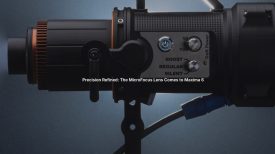Red Bull have put up a video showing what they are calling the world’s fastest camera drone following Red Bull Racing’s Max Verstappen driving the RB20 F1 car around Silverstone’s Grand Prix Circuit.
The Dutch Drone Gods are the company that is behind the uninterrupted FPV one shot that was captured by a manually piloted custom built drone, designed specifically for the challenge of keeping up with the car at speeds of over 300kph. These guys do some phenomenal work and you should definitely check out their website.

It took Red Bull and the Dutch Drone Gods over a year to create a drone that can accelerate two times faster than an F1 car, reaching 300 km/h in just 4 seconds with a top speed of over 350 km/h. The development was accelerated by Red Bull Advanced Technologies, a high-performance engineering arm of Oracle Red Bull Racing Formula 1 team and trialled behind the RB8 and RB19 cars driven by Liam Lawson and David Coulthard.

The custom drone that the Dutch Drone Gods are using only has a battery life of 3 minutes! This comes as no surprise given the fact that its rotors spin at up to 42,000rpm and it has a top speed of 350 km/h.
How did it all begin?
In early 2023, Red Bull came to the Dutch Drone Gods to see if they could track an F1 car at full speed for an entire lap. This was a big challenge because at the time FPV drones could only reach speeds of up to around 180km/h, but not for sustained periods of time.

Fast forward 8 months and the Dutch Drone Gods worked tirelessly to solve the puzzle of finding the perfect balance between electronics, canopy designs, weight, speed, flight length, and distance. This lead to a quite unique design and it looks more like a missile than a traditional drone.

In early September 2023, on the very first lap, they were able to successfully track the RB19 F1 car along the track, completing the entire lap at full speed. The drones able to reach 310 km/h on Wellington Straight and the Hanger Straight.
After this successful test, they then made design changes and upgrades. Red Bull Advanced Technologies assisted in manufacturing the structural components, including the production of glass fiber canopies, internal structures, and carbon arms.
It will be interesting to see how this technology gets used going forward. I wouldn’t imagine that we will ever see it being used during an actual F1 race due to the safety implications.
You have to and it to Red Bull’s marketing department, they know how to come up with interesting and unique videos.








